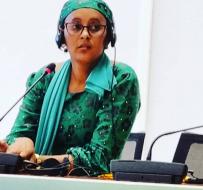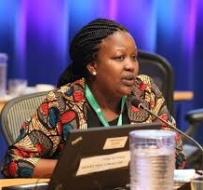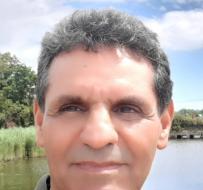Indigenous peoples in Africa live in varied ecosystems, including savannah grasslands, deserts, coastal areas, tropical forests and other kinds of forests, to name just a few. Many have traditional livelihoods/lifestyles based on seasonal and annual patterns of sustainably utilizing resources within their lands and territories as reflected in their poems, songs, language and stories. For many, livelihoods are dependent on nature. They have a wealth of indigenous knowledge and capacity to observe, monitor and make informed decisions about the use of natural resources, and have developed and innovated since time immemorial.
African indigenous peoples are adapting to climate change using their knowledge systems and customary practices. These are important sources of wisdom that can inform climate policy, practice and decision making at local, national regional and international levels. Afar pastoralists, for example, use a comprehensive traditional system of observation and analysis to aid decision making, and gather indicators through ranged scouting, sharing through a traditional knowledge network, and analysis by village elders. Others, like the Turkana peoples, structure their calendar based on observed changes, rather than on a fixed progression of time. This allows them to adapt their practices to the changes in climate and weather and enhance their adaptive capacity. The rainmakers of the Nganyi community, as another example, have collaborated with meteorologists to co-produce forecasts that are then shared throughout the community and by regional meteorological networks, enhancing the forecasting ability and readiness of all.
For more resources and information, to see news and events, and to engage with regional representatives, organisations and the Local Communities and Indigenous Peoples Platform, please see below.
- Nailejileji Tipap (COP 26)
- Gakemotho Satau (COP 26)
- Aissatou Dicko (COP 26)
- Balkisou Buba (COP 27)
- Sada Alberchir (COP 27)
- Aïssatou Oumarou (COP 27)
- Saro Pyagbara (COP 27)
- Faith Nataya (COP 27)
- Ali Mohamed Adan (COP 28)
- Jean-Mary Tjiohimba (COP 28)
- Latifa Douch (COP 28)
- Oumou Dicko (COP 28)
- Egide Mboyolo (COP 28)
Organizations relevant to Indigenous Peoples in the region will appear here.
- African Indigenous Foundation for Energy and Sustainable Development (AIFES)
- African Indigenous Women Organization Central African Network (AIWO-CAN)
- Association Gabonaise d'Assistance aux Femmes Indigènes et Indigentes
- Impact Kenya
- International Alliance of Indigenous and Tribal Peoples of the Tropical Forests (IAITPTF)
- JAMIL ASILIA CENTRE
- Karamoja Women Cultural Group
- L'Association des Femmes Peules & Peuples Autochtones du Tchad (AFPAT)
- Mbororo Social and Cultural Development Association (MBOSCUDA)
- Pawanka Fund
- PINGO's Forum
- REPALEAC
- The Indigenous Peoples of Africa Coordinating Committee (IPACC)


